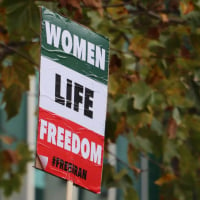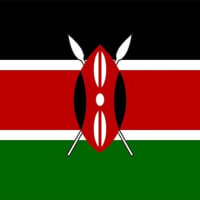New kit and sponsor (P108, 2021 new 3rd kit)
Comments
-
It looks as if it’s the holding company of BETDAQ that have donated the shirt sponsorship. They’ve done the same with Sunderland. Correct me if I’m wrong. In any case it’s a magnificent gesture7
-
5
-
Well done Betdaq and Charlton.0
-
Great cause. That Sunderland shirt is truly horrific, though.paulie8290 said:10 -
The Sunderland shirt has the logo ironed on over Betdaq which makes it look worse. We shouldn't have that problem.0
-
What a fantastic move by both the club and GVC/Betdaq. I wonder if such a gesture will actually make the National press or BBC website... doubt it somehow.
0 -
I knew it was a charity but didn't know which one. I'm really pleased with that though and fair play to Betdaq for the gesture.
Not sure how much of a say we had in the process but that's definitely more aligned with the way the majority of fans want Charlton to be run and regarded5 -
Agree although this seems like BetDaqs call rather than ours.Swisdom said:I knew it was a charity but didn't know which one. I'm really pleased with that though and fair play to Betdaq for the gesture.
Not sure how much of a say we had in the process but that's definitely more aligned with the way the majority of fans want Charlton to be run and regarded
I assume the income to LDTs spread sheet stays the same so he's not bothered.10 -
BetDaq's parent company are changing their marketing campaign. Withdrawing from football shirt sponsorship. Nothing to do with the club.
7 -
Very impressed with thisredcarter said:2 -
Sponsored links:
-
So the previous fuzzy mocked up kit with pinstripes and black strip sponsor could well be correct then...0
-
Surely everybody wins here.
Well done to all 😀2 -
Very worthy. Is it a Roland move? Curiouser and curiouser...
0 -
No, won't have cost the club a penny either, BetDaq have donated the shirt space theyve bought, the club have donated nothing, as far as I can see.soapy_jones said:Very worthy. Is it a Roland move? Curiouser and curiouser...4 -
Makes Roland look a saint without the bellend having done anything, nice touch from BETDAQ though0
-
That's just absolute class from BETDAQ.2
-
It's all to do with this isn't it ?
I would like to say it's a magnificent gesture, but the reality is the betting companies are stopping advertising during sports events, before the government banned it anyway.
Either way it's good news and long overdue.
Those incessant betting adverts drive me mad.
https://www.bbc.co.uk/sport/46453954Britain's biggest gambling companies have voluntarily agreed to a "whistle-to-whistle" television advertising ban.
The Remote Gambling Association (RGA), which includes Bet365, Ladbrokes and Paddy Power, has struck a deal to stop adverts during live sports broadcasts.
It follows political pressure about the amount of betting advertising on TV.
More than 90 minutes of adverts were shown during the football World Cup and anti-gambling campaigners say sport's use of adverts "normalises" betting.
There are also fears it contributes to the rise in the amount of problem gamblers - with a Gambling Commission report suggesting 430,000 Britons can be described as such - and helps fuel under-age gambling.
The deal follows extensive talks between firms - also including SkyBet, Betfred, Betfair, Stan James, Gala Coral and William Hill - to ensure no adverts will be broadcast for a defined period before and after a game is broadcast.
- BBC Three: Does football have a gambling problem?
- 5 live Investigates: Betting links found on football clubs' junior fan pages
- Why are sports betting adverts 'dangerous'?
The proposal is similar to those made by the Labour party and, importantly, will include any game that starts prior to the 9pm watershed but ends after that time.
The RGA has previously said it was "very mindful of public concerns".
Horse racing will be exempt from the restrictions - given the commercial importance of gambling on its viability - but all other sports will be included.
However, it is the impact on football where the ban will be felt the most, especially given the financial value of the sport to both the gambling companies and broadcasters.
Nearly 60% of clubs in England's top two divisions have gambling companies as shirt sponsors.
Final ratification is needed from the Industry Group for Responsible Gambling (IGRG) before the ban comes into force.
It is understood that there will be a meeting next week to rubber stamp the proposals. The intention will be to introduce the ban for the start of the 2019-20 season.
On Thursday, the RGA said: "The Gambling Industry Code for Socially Responsible Advertising is reviewed annually, and several options are currently being considered as the basis for possible enhancements in 2019.
"However, nothing has yet been finalised."
Tom Watson MP, Labour's Shadow Secretary of State for Digital, Culture, Media and Sport said he was "delighted" by the move as the number of adverts during live sports had "clearly reached crisis levels".
He added: "There was clear public support for these restrictions and I'm glad that the Remote Gambling Association has taken its responsibilities seriously and listened."
Secretary of State for Digital, Culture, Media and Sport, Jeremy Wright MP, said it was a "welcome move".
"Gambling firms banning advertising on TV during live sport is a welcome move and I am pleased that the sector is stepping up and responding to public concerns," he said.
"It is vital children and vulnerable people are protected from the threat of gambling related harm. Companies must be socially responsible."
Sarah Hanratty, chief executive of the Senet Group - the industry's responsible gambling body, funded by the four largest UK gambling companies - said: "It has been clear for some time now that the volume and density of advertising and sponsorship messaging from gambling companies around live sport has become unsustainable.
"This is a welcome move from the leading industry operators who are taking the initiative to respond to public concern."
Could shirt sponsorship be next?
Matt Zarb-Cousin is a spokesperson for Fairer Gambling, a not-for-profit entity campaigning to reduce gambling-related harm and crime.
It is long overdue, there has been a huge amount of pressure on the sector over the volume of advertising which has increased exponentially year on year.
But for it to be truly effective, it should also include shirt and league sponsorship and digital advertising around a pitch.
It is better that there are going to be no ads during live sporting events but that falls some way short of being effective. If the whistle-to-whistle TV advertising ban is justified then the other things are as well.
I think it is worth bearing in mind that it is the broadcasters that have been most resistant to the clampdown on advertising.
I think the writing is on the wall. If they hadn't done this, the government would have acted anyway, perhaps next year.
There is no legislation in the pipeline but the strength of feeling cross-party and in both houses suggests that it is unsustainable.
Will it make a difference?
Marc Etches is the chief executive of GambleAware, a leading charity committed to minimising gambling-related harm.
We have been saying for a long time now that gambling is being increasingly normalised for children. They are growing up in a very different world than their parents, one where technology and the internet are ever present.
So while we welcome this move by betting companies, it is important to pay attention to analysis that shows the marketing spend online is five times the amount spent on television.
The fact that it is reported that one in eight 11 to 16 year olds are following gambling companies on social media is very concerning.
What is the wider impact?
Bill Wilson, BBC Business reporter
Investors have been betting on Thursday that gambling firms' earnings will be hit by the ban.
William Hill, Paddy Power, Betfair and GVC (formerly Ladbrokes Coral) have all been in the red on the stock market on Thursday.
Football and gambling have been inextricably linked for nearly a century, since the launch of the football pools in 1923.
That connection has grown as the sport has become more commercialised, with many teams featuring gambling firms on the front of their shirts. Clubs have their own gambling partners, and allow fans to bet on matches within their stadiums.
But with problem gambling increasingly in the spotlight - look at the recent furore over fixed odds betting terminals (FOBTs) - there has been growing disquiet about the seemingly relentless association of football with gambling.
With concerns among politicians and psychologists about the potential effect on the vulnerable, including children, it seems gambling firms have decided to take positive action of their own, rather than risk waiting and being pushed, as was the case with FOBTs.
4 -
Not a black stripe, I understandElthamaddick said:So the previous fuzzy mocked up kit with pinstripes and black strip sponsor could well be correct then...1 -
The betting companies are ending the sports advertising before the government does.
GVC Holdings PLC, owner of Ladbrokes and Coral, have voiced their support for a blanket ban on sports betting advertising in the UK, including an end to gambling-related football shirt sponsorships and TV ads.
Indeed, GVC will self-impose such measures upon themselves as well as voluntarily increasing investment on RET (Research, Education and Treatment) from 0.2% of gross gambling revenue to 1% by 2022 as part of their Changing For The Bettor campaign, which aims to promote safer gambling.
Other fresh initiatives from GVC, the UK’s largest gambling company, which are designed to protect vulnerable gamblers, include their decision to withdraw their brands from perimeter advertising boards “to allow sporting fans to watch their favourite teams without seeing any incentives to bet.”
“The Company calls on its industry peers and UK football governing bodies to support this move and take action in this area,” added a potentially ground-breaking statement released by the company on Thursday.
Thursday’s statement is the latest in a string of efforts by GVC to combat gambling-related harm.
In January the company announced plans to commit $5million towards a five-year research project on responsible gambling, while they also volunteered to reduce the maximum stake on Fixed-Odds Betting Terminals (FOBTs) to £2 from £100 in their Ladbrokes outlets in Northern Ireland to reflect new legislation which only applied to the rest of the UK.
GVC Leading By Example
William Hill and Paddy Power subsequently took Ladbrokes’ lead with the FOBT fight in Northern Ireland and GVC hope their latest company policy change will once again inspire their rivals.
“While GVC helped to bring about the new restrictions, the Company believes they do not go far enough, and is therefore calling on its industry peers to join it in helping to revolutionise the marketing of gambling brands,” added their statement.
Further to the aforementioned initiatives, GVC also confirmed they will establish a new independent trust to fund treatment of problem gambling, as well as plans to introduce new software named GamBan, which will be offered to any customers who show signs of problematic gambling on any of their products.
Chief executive Kenny Alexander – who was instrumental in bringing about the pre-watershed whistle-to-whistle TV advertising ban on live sports which is due be implemented in the UK in August – reiterated the company’s call on other bookmakers to follow their lead.
“Whilst the vast majority of our customers enjoy our products responsibly, it is high time that the industry did more to protect its customers from potential harm,” he said.
“As the UK’s largest gambling company, and owner of Ladbrokes and Coral, we at GVC are doing exactly that. I call on our industry peers to help us bring about an end to broadcast advertising which promotes sports-betting in the UK no matter the time of day.
'Most Trusted Betting Operator'
“Increasing investment in research, education and treatment ten-fold by 2022, funding treatment centres and using technology to intervene before a problem develops, alongside our existing behavioural analytics, brings to life our commitment to be the most trusted and enjoyable betting operator in the world.
“The industry should and can do more to protect the vulnerable, and today’s announcement demonstrates GVC’s commitment to delivering on that.”
In a separate opinion editorial, also published on April 25, Alexander stressed the need for the gambling industry leaders to learn from mistakes.
He wrote: “This is a great industry to work in and I truly believe we provide fantastic entertainment products that we can be proud of, but all of us in the industry need to learn from the mistakes of the past, and take a more practical and hands-on approach to protecting the vulnerable.
“We at GVC are not shying away from our responsibility in this area and hope our actions can raise standards across the entire gambling industry.”
1 -
Great to have such a worthwhile charity as sponsor0
-
Sponsored links:
-
Dark blue...Henry Irving said:
Not a black stripe, I understandElthamaddick said:So the previous fuzzy mocked up kit with pinstripes and black strip sponsor could well be correct then...1 -
Cannot think of many things worse than the reason for that charity.
Wonder if there's scope for a percentage of shirt sales to go to the charity. Wouldn't expect a club to necessarily do that but perhaps even if it's just a case of an option of adding a quid to go direct to the charity/ make a donation when purchasing a shirt online or in the shop so buyers could choose to donate.1 -
Name the Man City player.Henry Irving said:0 0
0 -
You started receding at an early age.ValleyGary said:The 80’s era kits were works of art. My hair, wasn’t. 4
4 -
Paul Power ?ElfsborgAddick sai
Name the Man City player.Henry Irving said:0 0
0 -
Does the blurred symbol look like the children with cancer uk logo?Ross said: 0
0 -
You could be a detective.FishCostaFortune said:
Does the blurred symbol look like the children with cancer uk logo?Ross said:
 0
0 -
Kevin Kilcline.ElfsborgAddick said:
Name the Man City player.Henry Irving said:0 0
0 -
Is he Brian's brother?Covered End said:
Kevin Kilcline.ElfsborgAddick said:
Name the Man City player.Henry Irving said:0 2
2 -
I was close but no cigar.9goalswentpastperry said:
Is he Brian's brother?Covered End said:
Kevin Kilcline.ElfsborgAddick said:
Name the Man City player.Henry Irving said:0 0
0


















